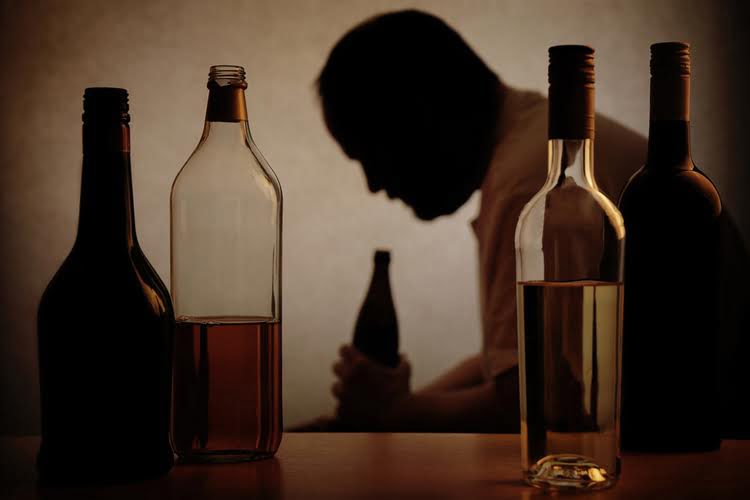Alcohol Poisoning: Symptoms, Treatment, and Prevention
31/01/2025 00:28
Celebrating at parties, cheering a favorite sports team, and enjoying get-togethers after work are common ways to relax or be with friends. For some people, these occasions may also include drinking—even binge or high-intensity drinking. People who don’t have any major complications from alcohol poisoning typically have a good prognosis.
Drink in moderation
- However, any BAC nearing 0.30 or higher is extremely risky and can be life-threatening.
- Whether you are seeking intensive outpatient care or simply need guidance on your mental health journey, we are here to help.
- Tolerance primarily influences the subjective experience of intoxication, not the body’s physiological response to alcohol.
- A blood alcohol concentration (BAC) of 0.250% to 0.399% is considered alcohol poisoning.
- In some cases, it may prove fatal if a person does not receive emergency care.
- If someone exhibits symptoms such as confusion, vomiting, seizures, slow or irregular breathing, or unconsciousness, call emergency services right away.
High BAC levels overwhelm the body’s ability to function correctly, leading to symptoms of alcohol poisoning. These symptoms include confusion, vomiting, seizures, slow or irregular breathing, hypothermia, and unconsciousness. Without prompt medical treatment, alcohol overdose causes permanent brain damage or death. Blood Alcohol Concentration (BAC) is a measure of the amount of alcohol present in a person’s bloodstream and is expressed in percentages. Alcohol poisoning depresses vital functions like breathing and heart rate, leading to potentially fatal outcomes. According to the Centers for Disease Control and Prevention, in the United States, excessive alcohol use is a leading preventable cause of death, accounting for 178,000 deaths annually.
- The numbers showed a significant increase during the COVID-19 pandemic, rising from 78,927 deaths in 2019 to 99,017 in 2020, peaking at 108,791 in 2021, before slightly decreasing to 105,415 in 2022.
- Alcohol poisoning symptoms are the result of drinking copious amounts of alcohol in a short period of time.
- This group consumes large quantities of alcohol in short periods, overwhelming their bodies’ ability to metabolize it safely.
- Alcohol poisoning affects the central nervous system, impairing breathing and consciousness.
- BAC levels can continue to spike even when a person stops drinking or is unconscious.
Fatal blood levels of alcohol
Someone who is “just drunk” will be slurring their words, stumbling around, and acting drowsy. Someone with alcohol poisoning will be breathing slowly or irregularly, have cold skin, be vomiting a lot, and perhaps have a seizure or lose consciousness. A drunk person can recover with rest, fluids, and eating a balanced meal, while a person with alcohol poisoning needs to go to the hospital and get an IV or maybe their stomach pumped. In the U.S., paramedics don’t charge for a visit unless the person needs to go to the hospital.
Lifestyle Quizzes
Blood alcohol levels of 300 to 500 mg/dL result in respiratory failure, cardiac arrest, or death. Yes, alcohol addiction increases the risk of alcohol poisoning due to the development of a higher tolerance and more frequent binge drinking episodes. Binge drinking is a pattern of alcohol consumption that brings a person’s BAC to 0.08 g/dL or above in a short time frame.
Body Weight
If vomit is inhaled into the lungs, it can cause a person to stop breathing. Know the danger signals, and if you suspect that someone has an alcohol overdose, call 911 for help immediately. Do not wait for the person to have all the symptoms, and be aware that a person who has passed out can die. Don’t play doctor—cold showers, hot coffee, and walking do not reverse the effects of alcohol overdose and could actually make things worse. What tips the balance from drinking that produces impairment to drinking that puts one’s life in jeopardy varies among individuals. Age, sensitivity to alcohol (tolerance), sex, speed of drinking, medications you are taking, and amount of food eaten can all be factors.

Unconscious persons are at risk of choking if they vomit, due to the dulling effects of alcohol on the gag reflex. Alcohol poisoning, serious medical condition that results from intentional or accidental consumption of alcohol, generally in large quantities over a short period of time. Alcohol poisoning affects areas of the brain that regulate basic physiological functioning, including body temperature, respiration, and heart rate. Left untreated, alcohol poisoning can lead to brain damage, coma, or death. Alcohol poisoning most often occurs among adults ages 35 to 64, with most instances involving men ages 45 to 54. Alcohol poisoning occurs when a person consumes a large amount of alcohol in a short period, leading to dangerously high blood alcohol levels.
- You might initially notice mild effects like slurred speech, forgetfulness, or clumsiness.
- Recognizing these early symptoms is crucial as they may signal the onset of more serious effects.
- Not always, but repeated, uncontrolled vomiting—especially when consciousness is fading—should be treated as a medical emergency.
Binge drinking is defined as consuming five or more drinks in two hours for men, and four or more for women. It occurs when alcohol consumption exceeds the liver’s metabolic capacity, leading to toxic levels of alcohol in the body. This results in a rapid rise in blood alcohol concentration (BAC), leading to ethanol toxicity. While overdrinking is the main cause of alcohol poisoning, other factors can increase your risks.
Alcohol Poisoning and Overdose: Symptoms, Causes, Treatment and Prevention
There is no exact formula for how many drinks reach this dangerous threshold because factors like age, body mass, liver function, and metabolism all play roles. Yet generally, drinking excessively in a short time to reach a BAC of around 0.40 could translate to consuming anywhere from 12 to 20 standard drinks for an average adult. If someone is smaller in size, Sobriety has lower tolerance, or drinks on an empty stomach, the lethal dose could be substantially less. The Recovery Village Atlanta offers comprehensive addiction treatment for drug and alcohol addictions and co-occurring mental health conditions.
Medical Professionals

The primary causes of alcohol poisoning are binge drinking, drinking on an empty stomach, and combining alcohol with other depressants like sedatives or opioids. These behaviors lead to rapid BAC increases, pushing levels into toxic ranges. According to the CDC, binge drinking is responsible for over 50% of alcohol poisoning deaths in the U.S. It’s important to pace yourself and avoid binge drinking, which what causes alcohol poisoning is defined as consuming excessive amounts of alcohol in a short period. Drinking slowly and alternating alcoholic drinks with water can help keep alcohol levels in check. The number of drinks leading to alcohol poisoning depends on drinking patterns.
What are the causes of alcohol intoxication?
Breath and blood tests measure the levels of alcohol and other substances https://georgetanisipeanu.ro/2023/02/22/home-center-for-dependency-addiction-and/ in the body. Intoxication is a state that occurs when the affected person has consumed enough alcohol or drugs to alter their mood and abilities. Mental or physical impairments can include slurred speech, difficulty walking, and disorientation. The amount of alcohol that can cause alcohol poisoning isn’t the same for everyone. Other factors include your medications and how much food you eat before drinking. Alcohol enters the bloodstream within minutes of drinking, and it takes about minutes for the blood alcohol level to reach its highest point.










